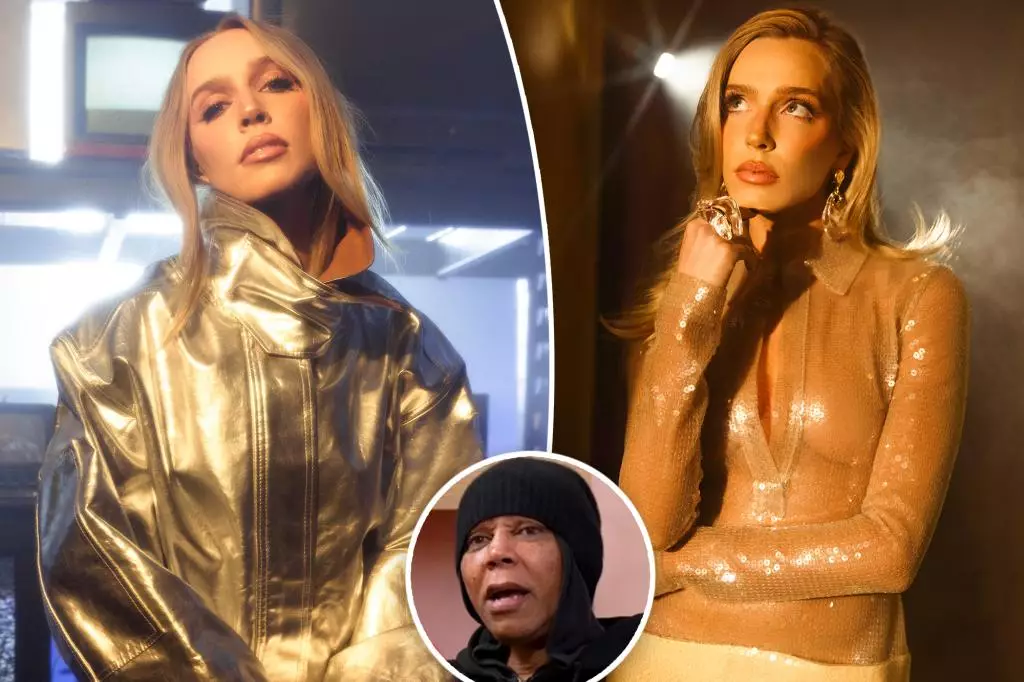In the world of podcasting, few hosts command the same level of respect as Alex Cooper. Recently, she disclosed in a Marie Claire interview that her most challenging guest so far has been none other than the legendary RuPaul. This revelation highlights the complexities of conducting interviews with towering figures in popular culture. Cooper openly admitted that her desire to impress the “absolute queen” made the experience particularly daunting. This sentiment resonates with many interviewers who have felt the weight of expectation when engaging with icons.
Cooper’s heartfelt admission—“I wanted so badly to have Ru love me”—captures not just her personal motivations, but also sheds light on the nuances of celebrity interviews. Many are unaware of the pressure that comes with presenting a persona that lives up to a guest’s expectations. For Cooper, acknowledging her privilege and the responsibility accompanying it added an extra layer of emotional intensity to an already high-stakes conversation.
Throughout their discussion, Cooper made a concerted effort to “stay toe-to-toe” with RuPaul, striving not just for a functional exchange but for a meaningful dialogue. She was keenly aware that her role extended beyond merely engaging a celebrity; it involved creating an environment that allowed RuPaul to feel valued and respected. The depth of their conversation, which covered themes such as family trauma and addiction, indicates Cooper’s commitment to facilitating genuine discussions instead of superficial interviews.
Cooper’s dedication extends beyond the guest; she emphasizes the importance of also serving her audience. This dual focus ensures that while guests like RuPaul are honored and respected, the listeners are not neglected. As she navigates this balancing act, Cooper aims to unearth insights that are both relatable and enlightening. Her commitment to making her guests “feel safe” during interviews speaks volumes about her approach to the craft.
What sets Cooper apart is her refreshing departure from conventional interview formats that often feel impersonal. In her own words, she contrasts her approach with that of other shows where hosts seem disengaged, merely reciting questions from a teleprompter. Such practices can feel dehumanizing to the interviewee, potentially alienating them from the audience. Cooper’s vision transcends mere question-and-answer sessions; her goal is rooted in empathy—she seeks to foster an atmosphere where guests truly feel seen and heard.
This commitment not only serves the guests, such as RuPaul and Miley Cyrus, but also enriches her audience’s experience. By humanizing these larger-than-life figures, Cooper allows listeners to connect with them on a more personal level. The depth she brings to her interviews reflects a profound understanding that empathy and connection enhance both the content and the impact of what is being discussed.
Cooper’s journey from launching “Call Her Daddy” to signing lucrative deals with Spotify and SiriusXM demonstrates her business acumen and dedication to growth. Each milestone signifies her evolution not just as a host, but as a brand that prioritizes authenticity and connection. Her emphasis on understanding and valuing each guest’s narrative echoes a broader trend in media where the audience yearns for substantive interaction rather than mere entertainment.
As Cooper continues to navigate the ever-evolving landscape of podcasting, her insights into the art of interviewing underscore a crucial lesson: the power of authenticity and empathy in forging connections, both with guests and audiences alike. In doing so, she establishes a model of engagement that could inspire aspiring hosts everywhere.

Leave a Reply